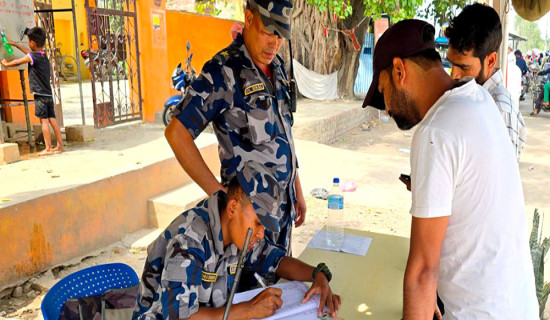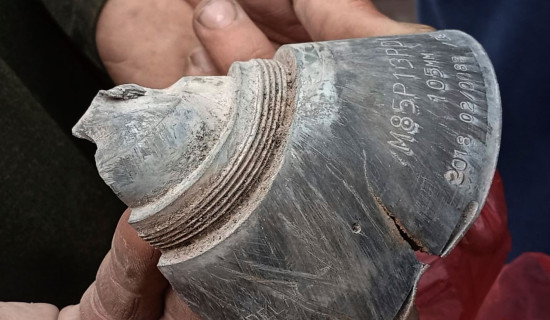- Monday, 12 May 2025
‘Our local bodies have close stake in development’
Chichila Rural Municipality is the smallest local level of Sankhuwasabha district, both in terms of size and population. The rural municipality has five wards and borders Khandbari Municipality, which is also the district headquarters. The powerhouse of the 900-megawatt Arun III hydroelectricity project, the largest hydel project in the country, is also here.
Pasang Nurbu Sherpa of the Nepali Congress currently chairs this rural municipality. He was first elected to the chairmanship of this local level in 2017 and was re-elected in 2022. This means that he has spent over half a decade leading Chichila. The Rising Nepal's Dhyan Kulung talked to him about the work he has done so far and the challenges he has faced. Excerpts:
Have you observed any differences between your first and second terms?
Oh, yes! We spent a lot of time understanding the system and learning the procedures in our first term. We literally started our term with only a diary and pen in hand. Later, we set up an office in a rented building. Gradually, we began formulating and enacting local laws. We built a solid foundation in our first term that has now made it easy for us to work. We are utilising the things we learned in our first term to serve the people effectively and efficiently in our second term. Things are moving relatively smoothly.
Which sectors have you prioritised, if any, for the development of the rural municipality?
We should not consider only large infrastructure projects as development. The improvement of the quality of life of our denizens and the creation of an aware society are also strong indicators of development and prosperity. That is why we have invested in education and health.
When we first came to office, our schools did not have enough teachers. The parents pooled their personal resources and hired teachers to educate their kids. But, immediately after our election, we developed a working procedure and hired 29 teachers. The rural municipality took responsibility for the teachers so that the parents were not burdened with having to support the educators of their children. Presently though, the Teachers Service Commission has sent us many teachers so the rural municipality only needs to support eight.
The health sector was in an equally bad state. There were only two health posts in the rural municipality before we came. Now though, we have 13 community health units serving nearly every locality in Chichila. We have started a free ambulance service for pregnant women, senior citizens and financially disadvantaged people. We have focused on developing agriculture and animal husbandry and ensuring markets for their products. We are also working to develop tourism.
What exactly have you done for tourism?
The Matsya Pond, located in Ward No. 4, is a famous tourist destination. To develop it properly, we have developed a master plan and have a plan to invest Rs. 110 million. Kaptane Pond is another important water body in our rural municipality. It is related to the Nepal-Tibet war and we are building infrastructure there to bring tourists from all over. Work on the Makalu Hirak Park, being built near this pond, is also moving forward. However, the federal government has not provided the budget it was supposed to for this project.
Similarly, we are developing master plans for the development and promotion of other tourist destinations like Balutham, Chuche Dhunga, Dhuwachhanga and Nagdaha.
What kind of relationship do you have with the Arun III project and has there been any cooperation?
Arun III is a much-awaited project and we have a largely good relationship with them. We have been facilitating the project in any way we can and helping them solve problems. They have been helping us develop our physical infrastructure, education and health sectors and have been supporting us during crises.
So far, we have built one school building with help from the project while two more are under construction. They have assisted us in the construction of community buildings and other structures as well. It has contributed to generating employment, providing employment-oriented training and scholarships to deserving students too.
What are the main challenges the rural municipality faces?
The main challenge we face is a lack of budget. We have as many things to do and as many services to deliver as the other local levels of the district, but we do not receive as much money. In fact, our local level receives the smallest budget in Sankhuwasabha. As we do not have much internal revenue as well, this is making it hard for us to meet people's expectations and aspirations. We could achieve so much if we received a larger budget.
Do you think there is anything other local levels can learn from Chichila?
I do not claim that our local level is the best. But I feel we have done some exemplary things. For instance, like other municipalities and rural municipalities of the country, we also had many people who did not have land ownership certificates. Many of our residents had been living on and utilising plots for generations. But they did not have deeds to it. So, we enacted a local law and began registering such land.
We have started collecting details of people who have held land, that is not part of any community forest, for a long time. First, this will give us an idea of the scale of the problem and second, the people will have some government paper proving their ownership of their land. The latter will also help people get their plots registered in their name at the time of the next survey. Perhaps, other local levels can think about doing something similar.
To push grassroots development and to foster local ownership of projects, we have formed locality development committees. These committees select all development projects to be implemented in their areas, except long-term and pride projects. They also collect tolls on behalf of the rural municipality and are allowed to keep 20 per cent of the amount.
Such initiatives make the locals active and give them a stake in development.



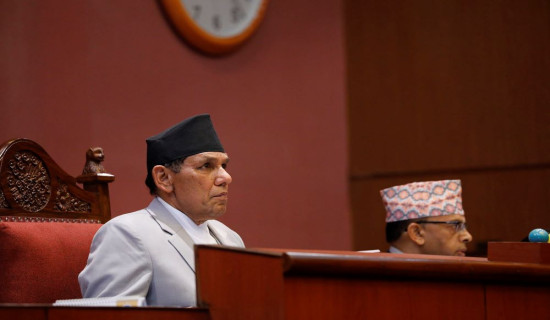
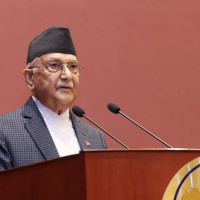
-square-thumb.jpg)
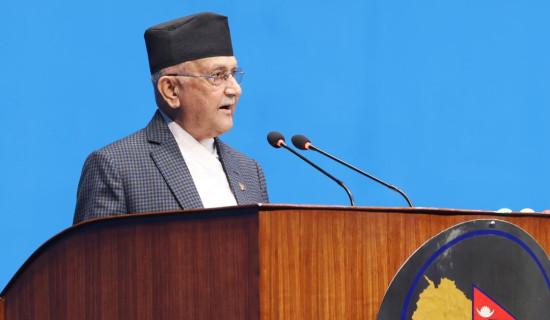
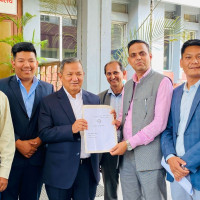
-square-thumb.jpg)



